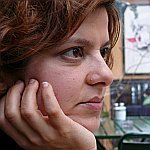Headline article of Sabah daily on March 4th unfortunately provides evidence for the Kurds who approached TRT6 (TRT Şeş in Kurdish), -state channel in Kurdish, which recently went on air- with caution.
Titled, "TRT6 Speaks and Guns Silence", this article evokes that the channel is an investment for the upcoming local elections rather than grasping the truth of the region, as proposed by the Kurdish population. It seems to disregard "two soldiers' deaths by accident, five PKK rebels hurt and 17 more who fled the PKK" during the period following TRT6's initiation, alleged as a "period of calm and peace".
No one but members of the ruling Justice and Development Party, Abdülkadir Aksu and Mehmet Mir Dengir Fırat defends the effective remedy allegedly caused by the channel in the article. On the other hand, pro-Kurdish Democratic Society Party MP Hasip Kaplan, International Strategic Research Center member İhsan Bal, terror expert Nihat Ali Özcan, Diyarbakır Bar Association chair Mehmet Emin Aktar, lawyer Sezgin Tanrıkulu, Human Rights Association representative Ali Akıncı and MAZLUMDER's Diyarbakır branch chair Seher Akçınar comment excessively on the situation in the region but they fail to mention TRT6.
In fact, the people in Silopi were sarcastically joyful rather than angry when DTP co-chair Ahmet Türk's speech in his mother tongue, on UNESCO's mother tongue day was censured by the parliamentary television.
Kurds talking to us in Silopi said that they don't watch TRT6. The common opinion is that the channel fails to provide an opportunity of freedom for Kurds and is mainly initiated as an electoral investment. A man in a barbershop declines to give his name as a precaution. "TRT6 welcomes the PM in Kurdish, why can't Ahmet Türk speak in Kurdish then?" he asks. "This channels is for the PM. Does Kurdish exist as a language. Yes. If so, it will be spoken everywhere. Even in the parliament," he giggles.
We don't insist to get his name, as we face three police security checks during a 10-minute promenade in the little town bazaar.
The conversations evolve around the same subject in Diyarbakır. Playing a table game in a traditional café in town center, Salih, Bayram and Selahattin criticizes the programming of TRT6 as not suited for Kurds and they're certain that it's a electoral propaganda move by the government.
Responding to our optimistic question as at least the channel means recognizing the Kurdish language at an official level, Bayram says "I want to live as a Kurd in the Turkish Republic. I should be able to defend my rights in court in Kurdish. Which Kurdish leader has been given space in that channel? Ahmet Türk's denied speaking in Kurdish in the parliament. His mother tongue is Kurdish, how come this is forbidden? What kind of a freedom is this?"
Selahattin's response is concise. "It's to get more votes. Everybody's aware of this. I don't like it and I won't watch it."
I'm not sure how my colleagues at Sabah managed to gather this article but we were in Sur district of Diyarbakır. The Sur district, whose elected mayor, Abdullah Demirbaş was forced to come down for trying to establish municipality services in Kurdish, Arabic and Syrian besides Turkish, in order to be able to communicate better with its citizens.(ZE/AGÜ)






